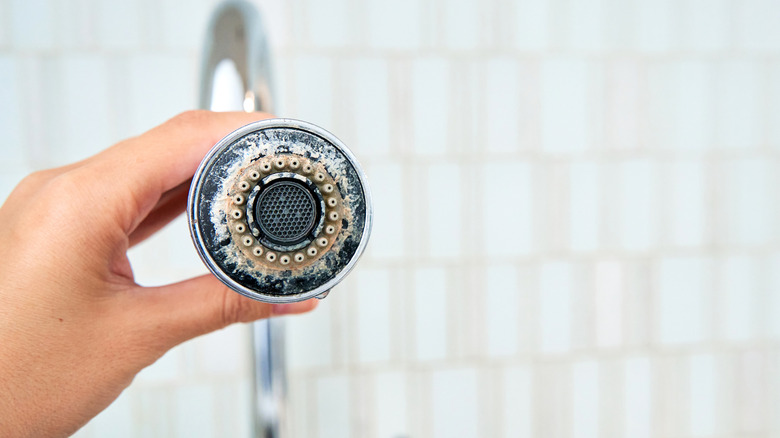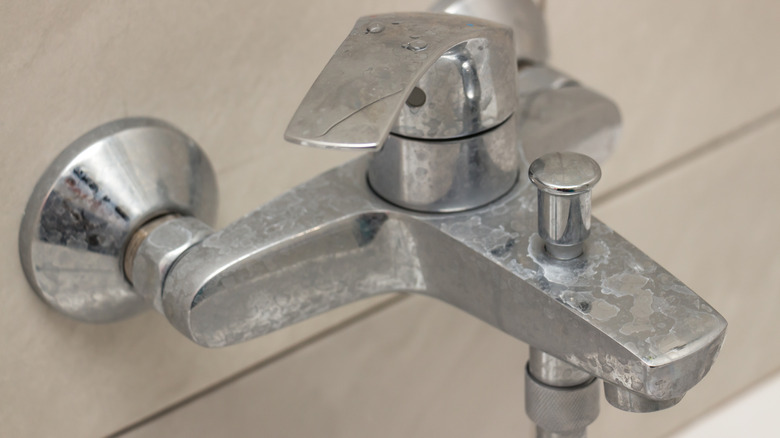How To Tell How Hard Your Water Is (And Why It Matters)
We may receive a commission on purchases made from links.
Whether it's for drinking, bathing, cleaning, or cooking, water is involved in your daily life. Although it's not harmful, hard water is a common issue for many households and can contribute to residue left by your water, affect how frequently you clean your appliances, reduce the effectiveness of detergents, and more.
Hard water contains high concentrations of calcium, magnesium, and sometimes iron. Water hardness concentration is reported in parts-per-million (ppm); the higher the concentration of dissolved minerals in your water, the harder it is. Water becomes hard by picking up minerals from areas like riverbeds or wells. Not all hard water is the same, and you can test the mineral levels of your water to determine if your home would benefit from a water softener if you suspect that hard water might be causing issues in your household. Mineral levels vary depending on where your water source is located; some areas of the United States, such as the Southwest and Midwest, typically have harder water than others. It's easy to test your water with at-home testing kits, such as the Varify Water Hardness Test Kit, which retails for around $10.
Why hard water matters
It may not be detrimental to your health, but hard water can damage your home's appliances. It can cause calcium buildup in the pipes and tubes of dishwashers and washing machines, impacting how efficiently they operate. If there is too much buildup, water flow and pressure can be affected. Hard water also makes it more difficult for detergents and soaps to remove dirt and clean properly. Soaps don't dissolve as well in hard water because there are higher amounts of minerals that the soap binds to, creating a chalky film known as soap scum. It can also be very tough to remove hard water stains, which you may notice on your faucets or appliances.
Typically, you can't identify hard water by looking at it or feeling it, but there are some telltale signs. From a look at your dishwasher, shower head, and glassware, you can get a sense of how hard your water is. Hard water tends to leave residue, film, or spots on glassware and can leave a white chalky film around a shower head or soap scum in a dishwasher. Buying an in-home water testing kit or sending your water to a professional for testing can help you determine the extent of the problem. If hard water is a significant issue, devices like this Aquasure Harmony Series 48,000 Grains Whole House Water Softener can be purchased online for as little as $600.

